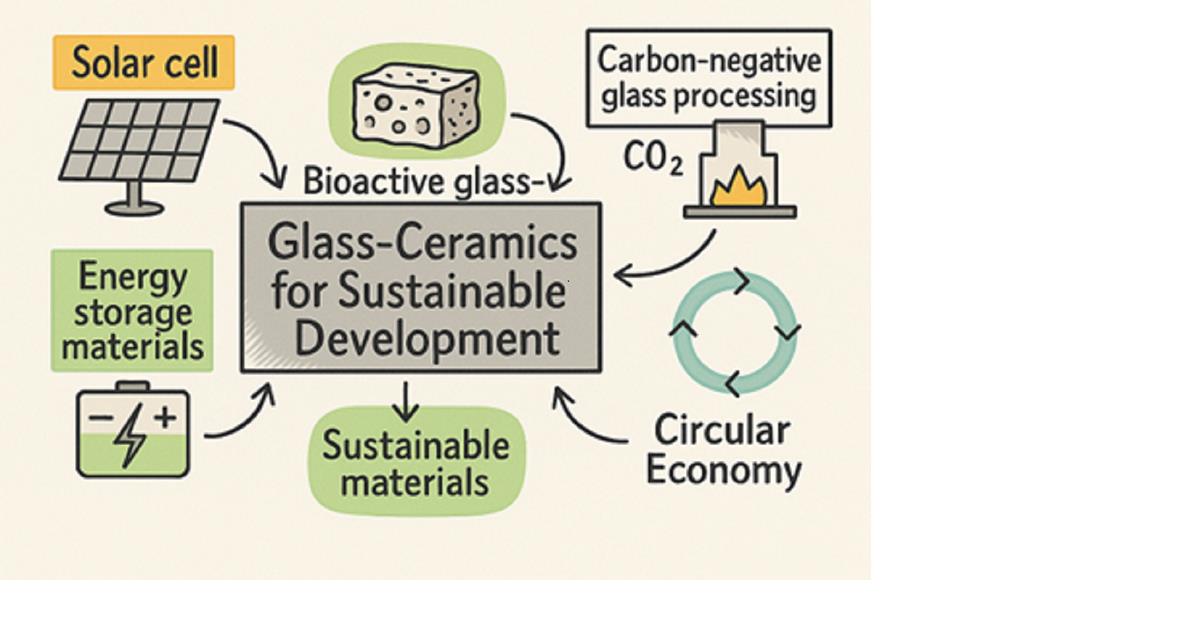Next-Generation Glass-Ceramics Materials for Energy, Environment, and Biomedical Applications
A special issue of Applied Sciences (ISSN 2076-3417). This special issue belongs to the section "Materials Science and Engineering".
Deadline for manuscript submissions: 20 March 2026 | Viewed by 336

Special Issue Editors
Interests: materials chemistry; chalcogenide glasses; glass-ceramics; oxide glasses; nuclear waste; solid state battery; ionic conductivity; solid state ionic conductor; metal organic framework (MOF)
Interests: radiation-resistant and high-temperature materials
Special Issues, Collections and Topics in MDPI journals
Special Issue Information
Dear Colleagues,
In recent decades, the growing demand for sustainable materials has driven a transformative evolution in the field of glass and glass-ceramics, aimed at addressing critical needs in energy solutions, environmental remediation, and advanced biomedical applications such as bone implants and dental materials. This Special Issue aims to spotlight the latest innovations in the design, synthesis, and application of advanced glass-ceramics tailored for multifunctional roles across energy storage and conversion, environmental protection, and healthcare.
Glass-ceramics offer a unique combination of structural versatility, tunable properties, and functional performance, making them ideal candidates for solid-state batteries, solar cell, nuclear waste immobilization, optoelectronic devices, and bioactive implants. Recent advancements such as cold sintering, ultrafast sintering, doping strategies, and nanostructuring have further expanded their potential in supercapacitors, fuel cells, wind-turbines, bone and dental regeneration.
This issue invites contributions that explore novel compositions, processing techniques, and characterization methods, as well as theoretical and computational insights into structure–property relationships. We particularly welcome interdisciplinary studies that bridge materials science, chemistry, physics, and biomedical engineering.
As Guest Editor, we encourage researchers, scientist, and industrial experts to share their cutting-edge findings and perspectives, fostering a collaborative platform to accelerate the development of next-generation glass-ceramic materials for a more sustainable and healthier future.
Dr. Deepak Patil
Dr. Marina Konuhova
Guest Editors
Manuscript Submission Information
Manuscripts should be submitted online at www.mdpi.com by registering and logging in to this website. Once you are registered, click here to go to the submission form. Manuscripts can be submitted until the deadline. All submissions that pass pre-check are peer-reviewed. Accepted papers will be published continuously in the journal (as soon as accepted) and will be listed together on the special issue website. Research articles, review articles as well as short communications are invited. For planned papers, a title and short abstract (about 250 words) can be sent to the Editorial Office for assessment.
Submitted manuscripts should not have been published previously, nor be under consideration for publication elsewhere (except conference proceedings papers). All manuscripts are thoroughly refereed through a single-blind peer-review process. A guide for authors and other relevant information for submission of manuscripts is available on the Instructions for Authors page. Applied Sciences is an international peer-reviewed open access semimonthly journal published by MDPI.
Please visit the Instructions for Authors page before submitting a manuscript. The Article Processing Charge (APC) for publication in this open access journal is 2400 CHF (Swiss Francs). Submitted papers should be well formatted and use good English. Authors may use MDPI's English editing service prior to publication or during author revisions.
Keywords
- glass-ceramics
- energy storage materials
- bioactive glass-ceramics
- carbon negative glass processing’s
- solar cell
- sustainable materials
Benefits of Publishing in a Special Issue
- Ease of navigation: Grouping papers by topic helps scholars navigate broad scope journals more efficiently.
- Greater discoverability: Special Issues support the reach and impact of scientific research. Articles in Special Issues are more discoverable and cited more frequently.
- Expansion of research network: Special Issues facilitate connections among authors, fostering scientific collaborations.
- External promotion: Articles in Special Issues are often promoted through the journal's social media, increasing their visibility.
- Reprint: MDPI Books provides the opportunity to republish successful Special Issues in book format, both online and in print.
Further information on MDPI's Special Issue policies can be found here.






